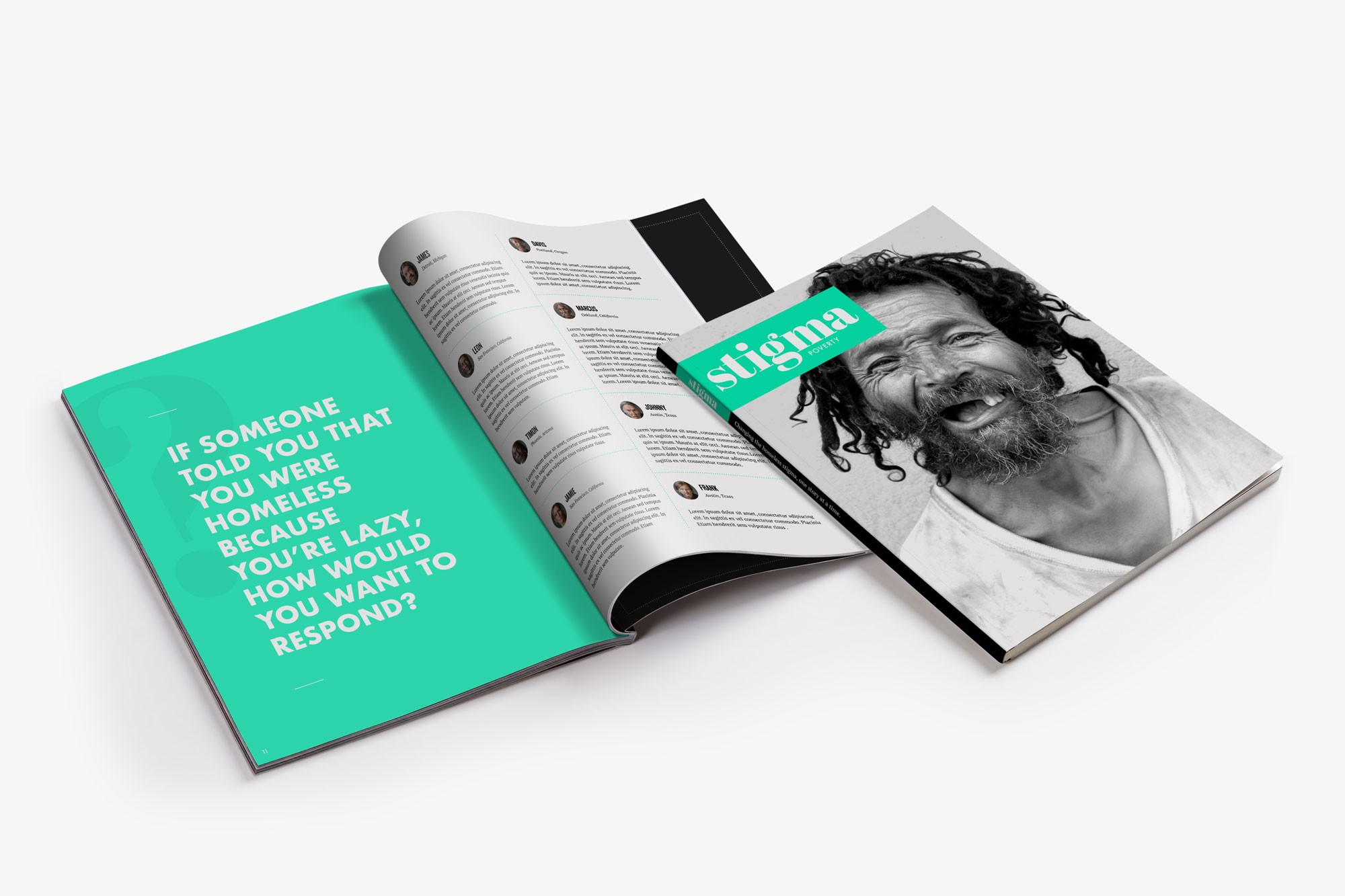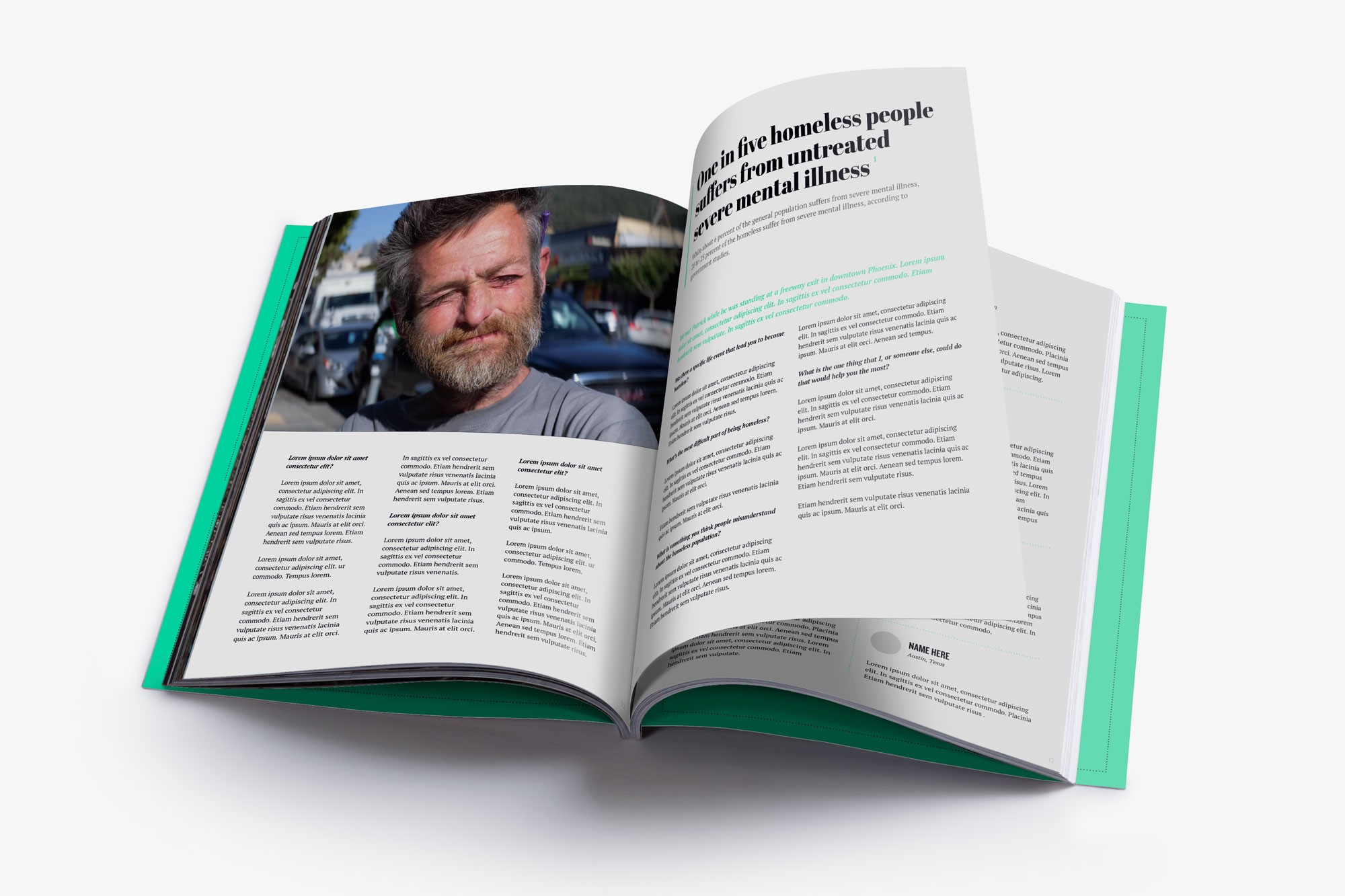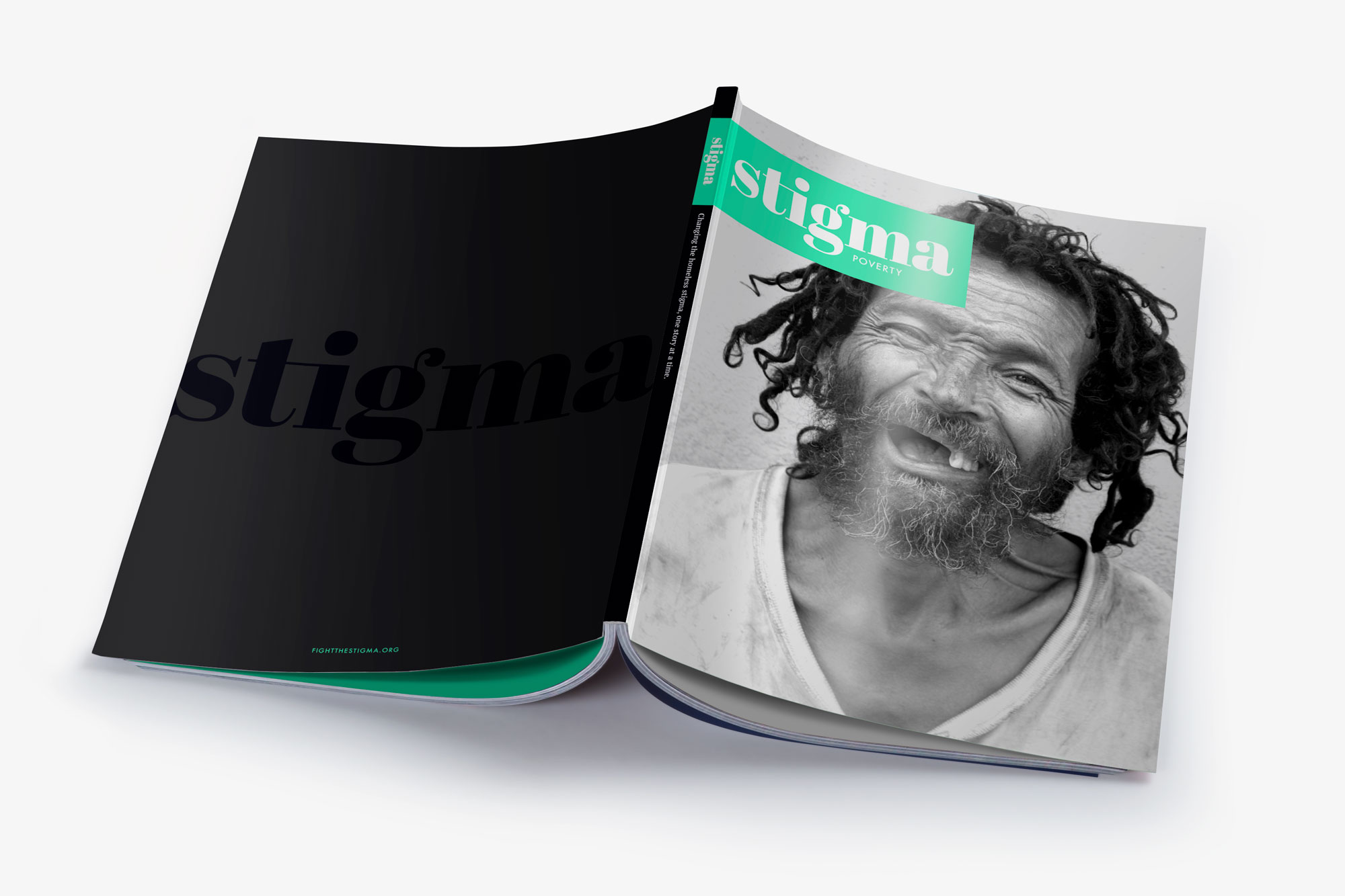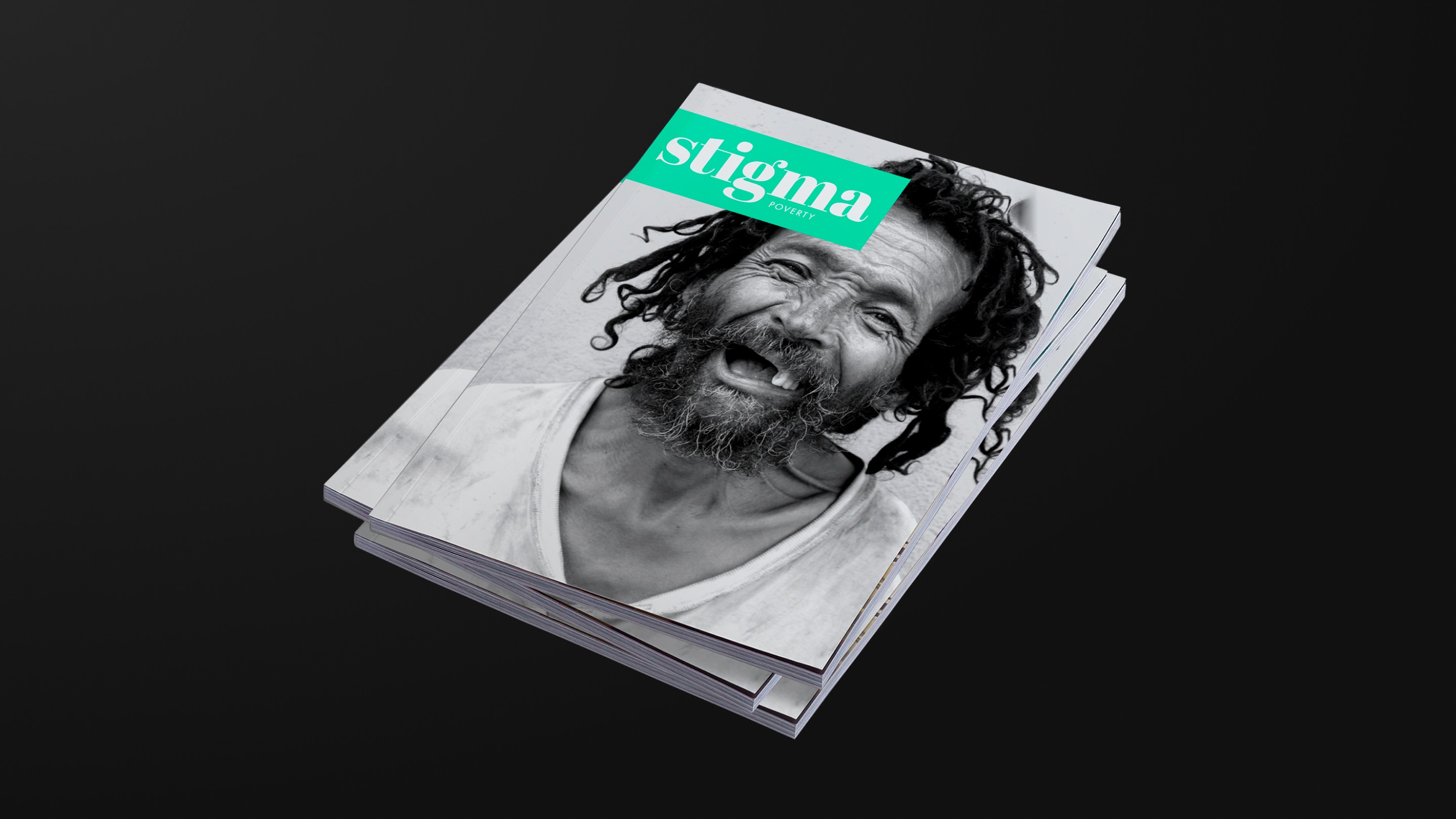Stigma
Stigma is a magazine challenging misconceptions about homelessness. Through compelling stories and hard facts, Stigma aims to replace prejudice with understanding, giving context and humanity to the complex realities behind this issue.
Year
2019
Category



Why Stigma?
Stigmas are those feelings in your gut when you see a homeless person asleep on the street, encounter a drug addict asking you for money, or hear immigrants will be your new neighbors. We all have them. They're false stories told to us by our culture that take up residence in our hearts and minds.
"Homeless people are lazy."
"Addicts should just quit."
"Immigrants are a threat to safety."
Sound familiar? Where do these stigmas come from?
First off, ignorance. Broad stroke generalizations are easier-to-digest than the reality of complex issues. Most people would rather believe a catchy lie than dig into factual truth. But ignorance isn't bliss. It's ignorance.
Then there are bubbles. Our nice, safe bubbles with people who look like us and act like us and make as much money as us. Our damn, homogenous bubbles. They're the lifestyle equivalent of "out of sight, out of mind." Stigma people over there. Me over here. But we were made for more than our own little worlds.
Finally there's fear. Challenging our own thoughts and beliefs is difficult. A change of mind-of heart-may require sacrifice, generosity, and for us to face our own preconceived notions. Willingly doing that takes guts.
Stigma exists for people who see the stigmas in themselves and are ready to do something about it. We believe that what our stigmas lack are story, context, and humanity. Everything changes when you learn that John is homeless because he got cancer and spent all his money paying the bills, or that Tina's mom was an addict that left her pre-disposed to alcoholism, or that Raul and his family came to the US to escape a war back home.
We also focus on the facts. Knowing the truth about complex topics helps us see things more clearly and take action accordingly.
What's on the other side of facing our stigmas? Maybe, just maybe, we'll be better people and the world will be better for it. Our stigmas will be replaced with kindness, community, and a shared human experience.
Let's fight our stigmas. Together.

